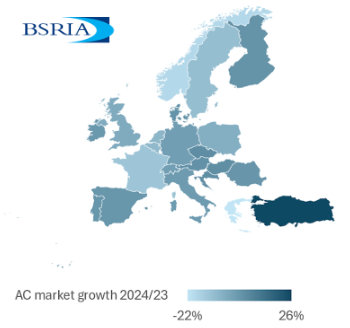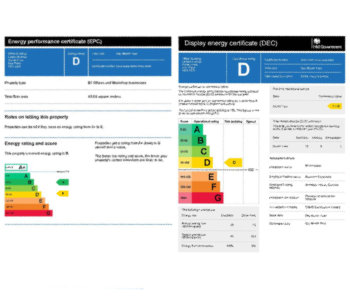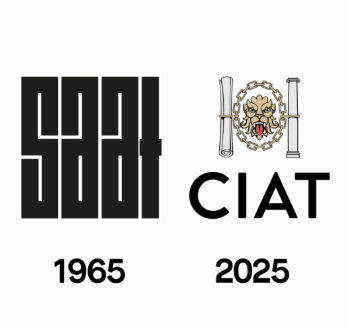Smart contracts
Contents |
[edit] Introduction
Smart contracts are negotiated, verified and automated by a computerised protocol. Digital Built Britain recommended smart contracts for construction procurement in level 3 BIM (building information modelling) as a replacement for paper-based contracts.
Smart contracts can provide better protection through digital archiving, have the flexibility to be changed during the project, and are easier to administer, resulting in lower transaction costs and faster transactions.
The term was originally coined in 1994 by the computer scientist Nick Szabo. He referred to smart contracts being used to bring the practice of contract law to the design of e-commerce protocols between strangers on the Internet.
However, the term can be misused to describe contracts which are produced electronically, reducing the need for paper. While this process can help simplify contracts, it does not provide innovation in terms of how they are planned or used.
Truly smart contracts automatically validate conditions to determine the action that the contract requires. In this sense it has been compared to a vending machine, whereby a simple transaction results in a contract without the need for the ‘middle man’ of the lawyer to produce documentation.
[edit] Types of blockchain
Some of the smart contract systems, sometimes referred to as ‘blockchains’, that are currently available include:
- Bitcoin: A digital currency that processes transactions but is limited in terms of processing documents.
- Side Chains: Run adjacent to Bitcoin, offering more scope for processing contracts.
- NXT: A public blockchain platform providing smart contract templates.
- Ethereum:The most advanced public blockchain platform for coding whatever smart contract is required.
[edit] Intelligent contracts
Intelligent contracts differ from smart contracts in that they ask questions of the contract users. From the answers received, they use logic to plan, create and negotiate bespoke contracts, adopting only the clauses relevant to the particular project and users.
The hope of those developing intelligent contracts is that the standard forms of contract could be entirely replaced by one single access questionnaire portal. Intelligent contract systems could also be developed to import smart elements into longer digital contracts, such as:
- Automating the delivery of agreed contracts for digital execution.
- Updated the programme of works based on variations or compensation events.
- Automating payments to the supply chain.
- Releasing documents.
- Submitting claims.
[edit] Advantages of smart contracts
Smart contracts have been criticised for their flaws. For instance, vulnerability to viruses, taxation of transactions, liability for errors and so on. However, the advantages of smart contracts might include:
- Autonomy: Removes the need for intermediaries.
- Trust: Documents are encrypted on a shared drive.
- Back-up: Documents are duplicated on the blockchain.
- Safety: Websites are encrypted, keeping documents safe.
- Speed: Removes time spent manually processing contract documents.
- Savings: Costs saved on intermediaries, and so on.
- Accuracy: Errors in manually filled-out documents can be avoided.
- Audit trails: Simple audit trails and records in real time can simplify the resolution of claims and disputes.
[edit] Related articles on Designing Buildings Wiki
- Collaborative practices for building design and construction.
- Construction 2025.
- Construction contract.
- Contract documents.
- Digital Built Britain.
- Essentials of a contract.
- Procurement route.
- Smart construction.
[edit] External resources
- Blockgeeks - Smart contracts
Featured articles and news
Shortage of high-quality data threatening the AI boom
And other fundamental issues highlighted by the Open Data Institute.
Data centres top the list of growth opportunities
In robust, yet heterogenous world BACS market.
Increased funding for BSR announced
Within plans for next generation of new towns.
New Towns Taskforce interim policy statement
With initial reactions to the 6 month policy update.
Preparing for the future: how specifiers can lead the way
Effective specificationand the Future Homes Standard.
Heritage, industry and slavery
Interpretation must tell the story accurately.
PM announces Building safety and fire move to MHCLG
Following recommendations of the Grenfell Inquiry report.
Conserving the ruins of a great Elizabethan country house.
BSRIA European air conditioning market update 2024
Highs, lows and discrepancy rates in the annual demand.
50 years celebrating the ECA Apprenticeship Awards
As SMEs say the 10 years of the Apprenticeship Levy has failed them.
Nominations sought for CIOB awards
Celebrating construction excellence in Ireland and Northern Ireland.
EPC consultation in context: NCM, SAP, SBEM and HEM
One week to respond to the consultation on reforms to the Energy Performance of Buildings framework.
CIAT Celebrates 60 years of Architectural Technology
Find out more #CIAT60 social media takeover.
The BPF urges Chancellor for additional BSR resources
To remove barriers and bottlenecks which delay projects.
Flexibility over requirements to boost apprentice numbers
English, maths and minimumun duration requirements reduced for a 10,000 gain.
A long term view on European heating markets
BSRIA HVAC 2032 Study.
Humidity resilience strategies for home design
Frequency of extreme humidity events is increasing.
National Apprenticeship Week 2025
Skills for life : 10-16 February
























